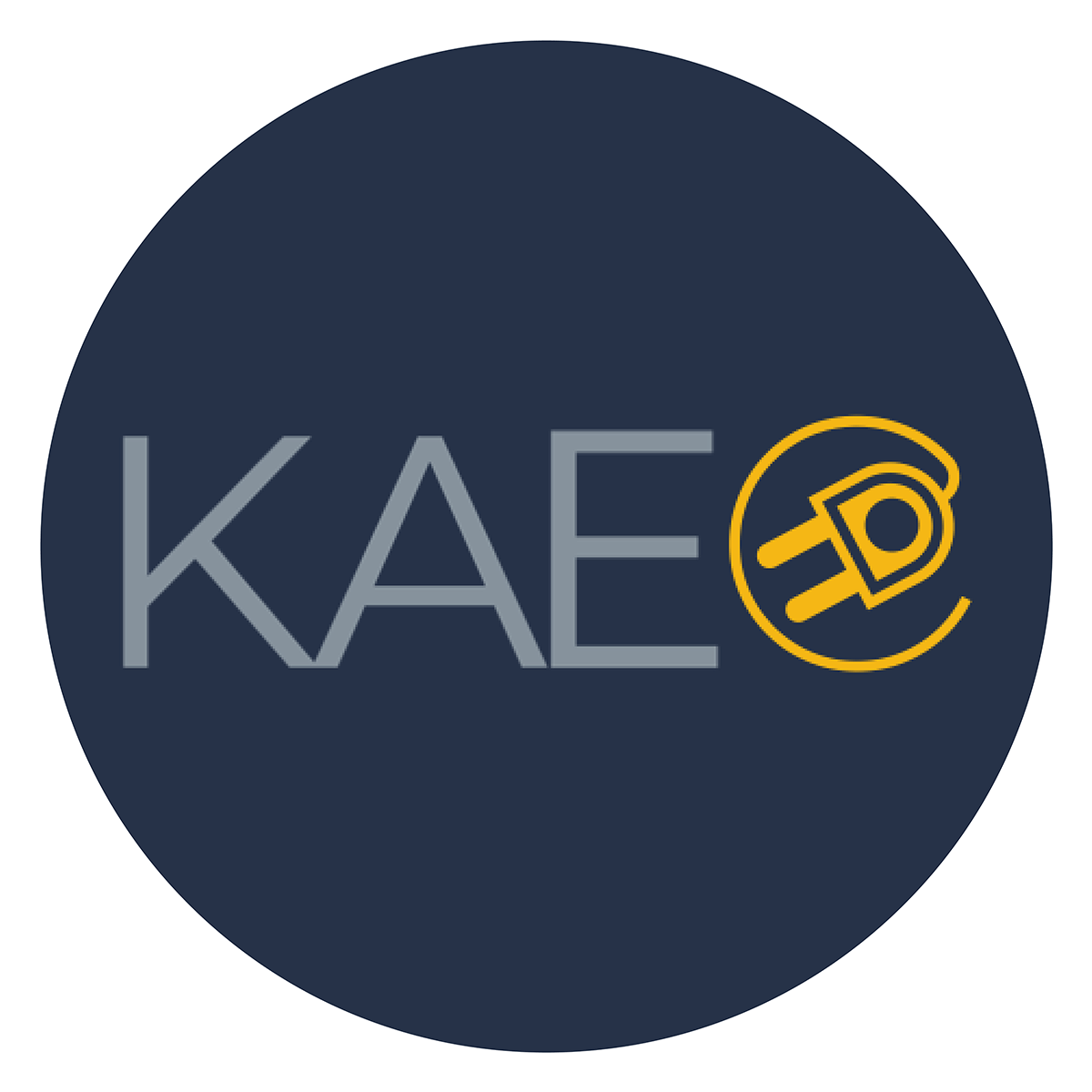The following article was published on the CompetencyWorks blog by The Aurora Institute.
As I began my eighteenth year in education, I felt ready for a new challenge. How could I increase the size and scope of my support for inspiring educators to become more innovative? The world answered by opening a door. In August 2022, I joined a newly formed Deeper Learning Team as a Deeper Learning Design Specialist for the Ohio Valley Educational Cooperative (OVEC), one of eight such Kentucky regional co-ops. 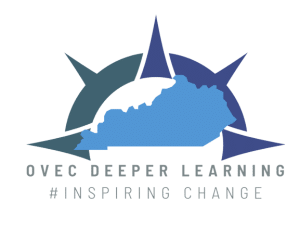 These cooperatives are quasi-state organizations that help leverage the collective membership of their school districts in order to manage or procure large-scale projects (such as multi-million dollar grants or programs such as Head Start), but on a more basic level, co-ops also offer districts various services and veteran expertise that augment what they have or supplement what they do not. Our OVEC Deeper Learning Team supports fifteen school districts and over 150,000 students in implementing innovative school system change.
These cooperatives are quasi-state organizations that help leverage the collective membership of their school districts in order to manage or procure large-scale projects (such as multi-million dollar grants or programs such as Head Start), but on a more basic level, co-ops also offer districts various services and veteran expertise that augment what they have or supplement what they do not. Our OVEC Deeper Learning Team supports fifteen school districts and over 150,000 students in implementing innovative school system change.
Outside of OVEC, the other seven Kentucky co-ops have also launched their own Deeper Learning Teams this past summer with some autonomy to determine how to best support deeper learning for their own districts. However, we certainly were not created nor do we work in a vacuum! We have an overarching cooperative leadership organization (Kentucky Association of Educational Cooperatives, or KAEC) to provide guidance and resources. This was all born from a multi-year $24.5 million dollar grant established in the summer of 2022, part of state ESSER funds set aside by the Kentucky Department of Education to transform teaching. Each of Kentucky’s 171 school districts have an opportunity to apply for their allotted portion of the grant, with two-thirds earmarked for teacher stipends and the remainder for approved discretionary spending (for expenses such as vendor partnerships and travel to deeper learning schools and conferences).
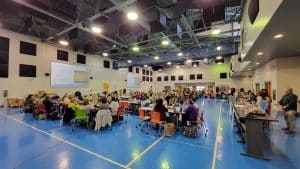
At this point, you may be wondering what “Deeper Learning” is, or why I haven’t yet defined it. While we must avoid slinging around faddish phrases without some sense of common nomenclature, we also must avoid rigidity that pigeon-holes innovation. Dr. Jason Glass (Kentucky’s current Education Commissioner) tackles this definitional problem in his aptly titled December 1, 2022 article for Kentucky Teacher, “What is deeper learning?” As Glass states, “At the Kentucky Department of Education, we’ve shied away from laying out some official definition of ‘deeper learning’ because it can take on several forms. We believe it is important for Kentucky’s students, educators, parents and community members to explore the question of what ‘deeper learning’ means on their own.” However, Glass offers clear guardrails by explaining what deeper learning is (“All of us have experienced learning in our lives that was deep, rich, authentic and meaningful to us – the kind of learning that made an impact and that taught us important lessons that we carry with us through our lives” which “go beyond just memorization or learning to do a repetitive task and require us to demonstrate a higher-level set of skills”) and what it is not (“shallow” learning that is “surface level only”). Lastly, he points out that deeper learning still requires academic content knowledge, but in ways that emphasize application over regurgitation and in places that could be outside the four walls of a school.
However, it’s important to note that the need for a deeper learning pedagogy, and grant-funded Deeper Learning Teams, came from a much more fundamental discovery about Kentucky education. Back in the 2020-2021 school year, Dr. Glass conducted listening tours across the state. The pandemic limited the ways it was conducted – they were done virtually – but that did not negate its purpose, scope, or community participation. In essence, Dr. Glass asked: what are ways we can improve education in our Commonwealth? The various stakeholders of educators, parents, and students gave their answers, and in November 2021, the Kentucky Department of Education synthesized the results to create the United We Learn Kentucky report. While several themes emerged, the findings boiled down to “Three Big Ideas” on how to improve the nature of school for all Kentuckians:
- Create more vibrant student learning experiences
- Encourage innovation, especially in assessment (at the classroom, district, and state levels)
- Collaborate more often and more effectively with our communities
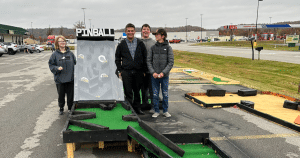
The creation of Deeper Learning Teams became a perfect support structure for bringing United We Learn Kentucky’s Three Big Ideas to life. The OVEC Deeper Learning Team concentrates on changing the learning outcomes of students, and asks: “How might we reimagine the student experience to become more meaningful, relevant and inspiring so that every learner is equipped for a successful future?” Reimagining the student experience tackles ways to have more “vibrant student learning” as well as the need for more authentic, meaningful assessment. For example, how can the kinds of collaborative STEM projects Kentucky students present at regional and state Student Technology Leadership Program (STLP) competitions be brought into the typical classroom as a high quality performance assessment? That leads us to our next belief: deeper learning can and must achieve equitable outcomes and involve every learner instead of only the students at the margins; if it only occurs in something like a STEM afterschool club with limited numbers of learners, these educational “Ideas” will be the very opposite of “Big.” Relevancy requires addressing the real-world problems of a school’s or district’s local or broader communities, but we cannot stop at merely acknowledging or discussing these issues. Students must be empowered and inspired to positively impact their environment. This could mean bringing community members into school buildings as guest speakers and Defense of Learning/Exhibition panelists, students solving community problems via Project-Based Learning, or other novel approaches.
As you can see, these aspirations for Kentucky’s “Three Big Ideas” fit snugly within the innovations required of our Deeper Learning journey. In Part Two, I will share the challenges and successes the OVEC Deeper Learning Team has experienced in the first half of our inaugural school year.
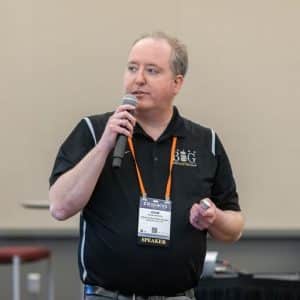 Adam Watson has been an educator in Kentucky since 2005. He began as a high school English teacher, eventually becoming Teacher of the Year at South Oldham High School in 2009 and getting Nationally Board Certified in 2013. Adam was the Digital Learning Coordinator for Shelby County Public Schools from 2014 to 2022. In 2019, Adam was awarded KySTE Outstanding Leader of the Year. In August 2022, he joined Ohio Valley Educational Cooperative (OVEC) as a Deeper Learning Design Specialist. He is a frequent professional development presenter and session leader at conferences and institutions in Kentucky and beyond, and enjoys blogging from his site Edtech Elixirs.
Adam Watson has been an educator in Kentucky since 2005. He began as a high school English teacher, eventually becoming Teacher of the Year at South Oldham High School in 2009 and getting Nationally Board Certified in 2013. Adam was the Digital Learning Coordinator for Shelby County Public Schools from 2014 to 2022. In 2019, Adam was awarded KySTE Outstanding Leader of the Year. In August 2022, he joined Ohio Valley Educational Cooperative (OVEC) as a Deeper Learning Design Specialist. He is a frequent professional development presenter and session leader at conferences and institutions in Kentucky and beyond, and enjoys blogging from his site Edtech Elixirs.
